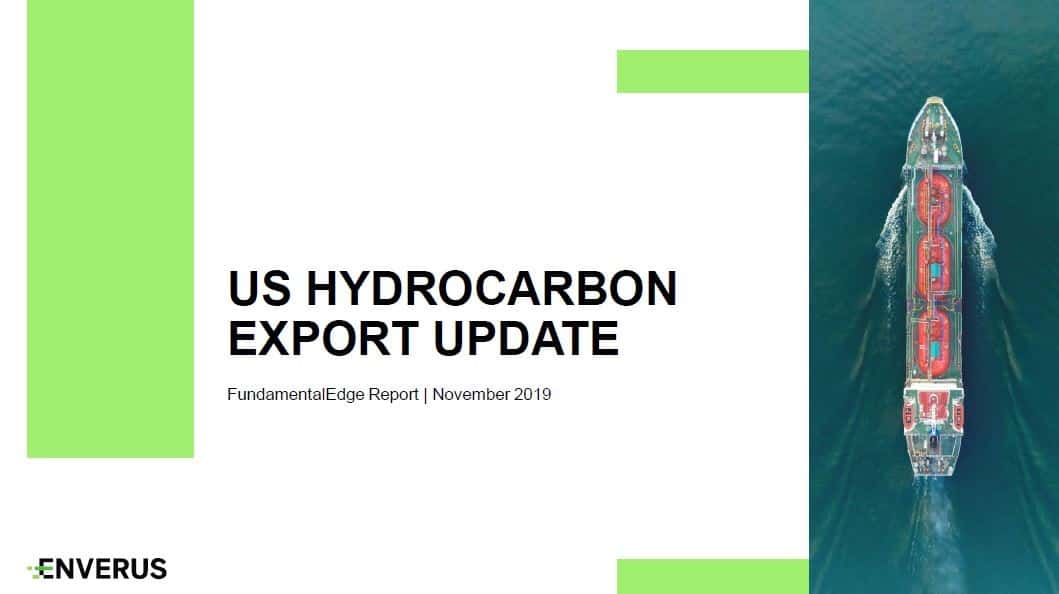Austin, TX (November 19, 2019) – Enverus, the leading energy SaaS and data analytics company, released an update on U.S. hydrocarbon exports showing the impact of recent infrastructure additions on U.S. exports of crude oil, liquified natural gas (LNG), and natural gas liquids (NGL).
In the update, Enverus leveraged vessel location data to provide a lower latency view on U.S. exports. Tankers, amongst other vessels, have been required to transmit their location and other information through an AIS transponder since 2000. By processing this data through an ever-growing list of docks and pairing that information with other contextual data, vessel location data is put into context, generating intelligence on vessel activity and ultimately cargo movements.
“For years, oil and gas production data provided by Enverus has helped shed light at a very granular level on the growth of U.S. oil, gas, and NGL production. With the tremendous growth in production of these fuels, exports have become the outlet to balance the market. By tracking vessel and cargo movements, Enverus is now providing increased transparency into this key area of U.S. hydrocarbon markets,” said Rob McBride, Senior Director of Strategy and Analytics at Enverus. “Whether it’s a rig count change, a planned pipeline that comes online, or an outbound tanker–it all matters in today’s infinitely connected world,” McBride said.
Enverus’ U.S. Hydrocarbon Export Update is the November FundamentalEdge report which leverages recent work by the Strategy and Analytics Group to track the global movement of tankers using AIS data and provides an updated view of U.S. hydrocarbon export activity.
Key Takeaways from the Report:
- Enverus analysts estimate that through the first 18 days of October, LNG exports were roughly 4.1 Bcf/d. Freeport LNG came online but exports were limited at Cove Point. Elba Island appears to have received a cooldown cargo but had not started to export.
- On the NGL side, Enverus experts estimate that through the first 18 days of October, exports from the major waterborne export districts (Houston, Port Arthur, Philadelphia, and Seattle) rose to nearly 1.4 million barrels per day. That increase was driven by Enterprise Products (ticker: EPD) which brought an expansion project online at their Houston Ship Channel terminal.
- Enverus analysts estimate that U.S. exports of crude oil surpassed 3 million barrels a day in the first half of October. This growth was being driven by the recent startups of the EPIC and Cactus II pipelines. Exports from the Houston customs district, which contains Corpus, are estimated to be more than 1 million barrels per day from July to October as a result of these new pipelines.

Members of the media, please contact Jon Haubert for a copy of the 18-page report or to schedule an interview with one of Enverus’ expert analysts.









